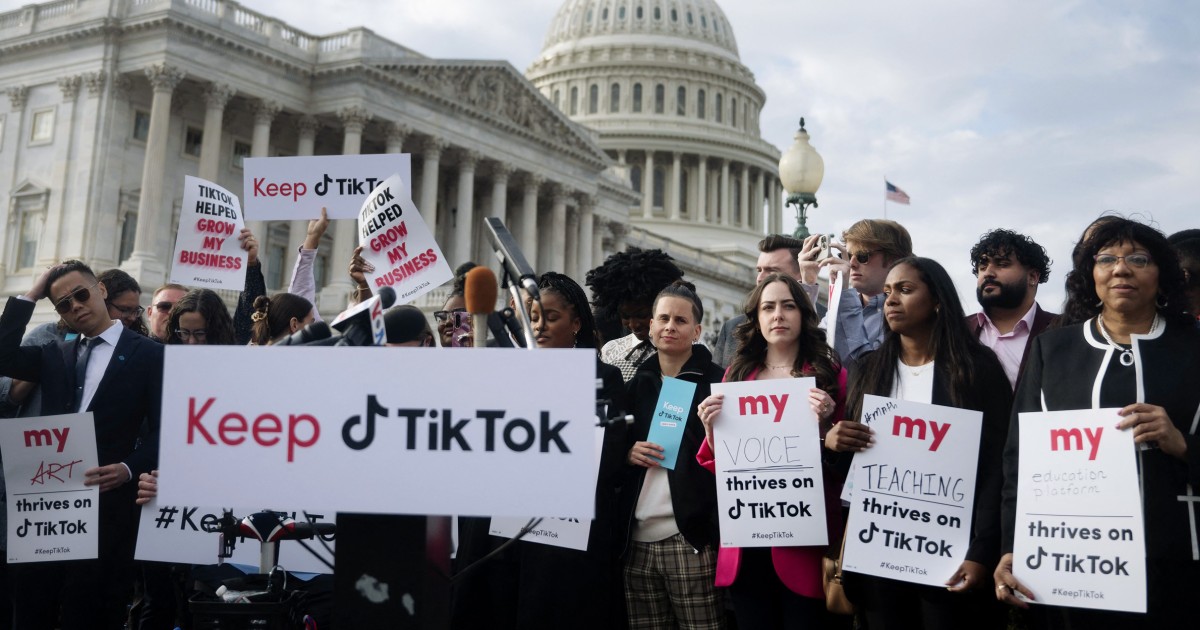Supreme Court Weighs the Future of TikTok: Will a Ban Change the Landscape?
As the Supreme Court delves into the complexities surrounding TikTok, users and creators alike are left pondering the potential outcomes of a possible ban on the platform. This deliberation is not merely about a single app; it represents a pivotal moment that could reshape the landscape of social media, free speech, and digital engagement in the 21st century.
The Context of the TikTok Debate
TikTok, a social media platform that has become a cultural phenomenon, allows users to create and share short-form videos, often accompanied by music and various effects. Launched by the Chinese company ByteDance, TikTok has amassed over a billion users worldwide, captivating younger generations and influencing trends in music, fashion, and even politics. However, its rapid rise has also raised significant concerns regarding data privacy, national security, and the influence of foreign entities on American soil.
As discussions escalate, the Supreme Court’s involvement highlights the gravity of these issues. Lawmakers and advocacy groups have expressed fears that the Chinese government could potentially access user data, leading to calls for stricter regulations or an outright ban. The implications of such actions extend far beyond TikTok itself, potentially affecting a multitude of social media platforms and the broader digital ecosystem.
Potential Impacts of a Ban
The potential ban of TikTok could usher in a series of profound changes across various facets of society:
- User Experience: Millions of TikTok users rely on the platform for entertainment, connection, and self-expression. A ban would sever this digital lifeline, forcing users to seek alternative platforms. This shift could lead to a fragmentation of online communities and the loss of a unique cultural space that TikTok has fostered.
- Creators and Influencers: For countless creators, TikTok is more than just a hobby; it’s a source of income and a platform for artistic expression. A ban could disrupt their livelihoods and lead to a significant loss of income for those who have built careers on the platform. Many creators may find it challenging to transition to other platforms, resulting in a loss of visibility and engagement.
- Digital Landscape: A ban could set a precedent for the regulation of other social media platforms, raising questions about government control over digital spaces. This could lead to a chilling effect on free speech, as users may become wary of expressing their thoughts and creativity online.
- Innovation and Competition: TikTok has spurred innovation among other social media platforms, prompting them to enhance their features and engage users more effectively. A ban could stifle this competition, leading to stagnation in the evolution of digital engagement.
Legal Implications and Free Speech
At the heart of the Supreme Court’s deliberation is the constitutional question surrounding free speech. The First Amendment protects the right to free expression, but the nuances of this protection in the context of social media are still being debated. If the Court decides to uphold a ban on TikTok, it could set a precedent for regulating other platforms, potentially infringing upon users’ rights to express themselves.
Legal experts argue that the implications of such a ban could be far-reaching. “If the government can restrict access to one platform based on data privacy concerns, what’s to stop them from doing the same to others?” asks constitutional law scholar Dr. Jane Mitchell. “This is about much more than TikTok; it’s about how we interact with technology and the rights we have in a digital age.”
Alternative Solutions: Regulation vs. Ban
While a ban may seem like a straightforward solution to address security concerns, many experts advocate for more nuanced approaches. Instead of outright bans, regulatory frameworks could be developed to ensure user data is protected while allowing platforms like TikTok to operate. Such measures could include:
- Data Protection Laws: Implementing strict data privacy regulations that require companies to be transparent about how user data is collected, stored, and shared.
- Collaboration with Tech Companies: Engaging with tech companies to create robust security measures that protect user data and mitigate risks associated with foreign access.
- Public Awareness Campaigns: Educating users about data privacy and security, empowering them to make informed choices about their online presence.
The Global Perspective on Social Media Regulation
The debate surrounding TikTok is not limited to the United States. Globally, governments are grappling with similar challenges related to social media regulation and data privacy. Countries like India have already implemented bans on TikTok, citing national security concerns. These actions have sparked discussions about the balance between security and freedom, forcing other nations to consider their approaches to digital governance.
Social media platforms operate in a complex web of cultural norms, legal frameworks, and political climates. As the U.S. Supreme Court weighs its options, the global community watches closely, as this decision may influence other countries’ regulatory frameworks regarding digital platforms.
Conclusion: A Defining Moment for Digital Engagement
As the Supreme Court considers the future of TikTok, the potential ramifications are vast. A ban could significantly alter the digital landscape, affecting millions of users, creators, and the broader social media ecosystem. However, this moment also presents an opportunity for proactive discussions about data privacy, free speech, and the responsibilities of tech companies.
The outcome of this deliberation will not only determine the fate of TikTok but could also redefine how we engage with digital platforms in the future. As we navigate this complex terrain, the call for balanced solutions that respect individual rights while ensuring data security resonates more than ever. The future of TikTok is uncertain, but the discussions it has sparked are crucial for shaping a responsible and inclusive digital landscape.
See more Future Tech Daily

